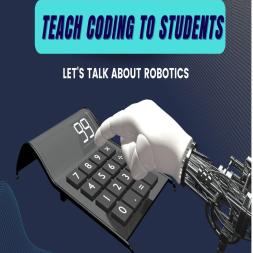
Teach Coding to Students
This course is designed to help teachers with no prior coding experience teach coding effectively to their students. The course is interactive and hands-on, providing teachers with the necessary tools to become more effective in their teaching approach.
Description
Day 1
- Introductions and course overview
- Understanding the basics of programming and the role of code files and text editors
- Exploring different text editors and understanding their features
- Understanding syntax rules in programming
Day 2
- Review of Day 1
- Learning the concepts of variables and data types in programming
- Understanding how to declare, assign and manipulate variables
- Introducing conditional statements and loops for branching and repetition
Day 3
- Review of Day 2
- Introduction to functions in programming and understanding their purpose and syntax
- Understanding how to define, call and pass parameters to functions
- Learning how to return values from functions
- Introducing object-oriented programming and how objects are used in programming
Day 4
- Review of Day 3
- Understanding the importance of testing in programming
- Learning how to write unit tests to check program correctness and identify bugs
- Understanding the debugging process and how to resolve issues in code
Day 5
- Review of the course topics
- Recap and summary of the key takeaways from the course
- The final project to apply the concepts learned during the course
- Certification – awarding certificates to the participants who have completed the course
Learning objectives
By the end of the “Teach Coding to Students” course, participants will have achieved the following learning outcomes:
- Understanding of coding fundamentals: Participants will have a deep understanding of coding concepts such as variables, data types, and loops, and be able to explain these concepts in a simplified and relatable way to their students.
- Knowledge of different teaching methodologies: Participants will be equipped with a variety of teaching methodologies that they can use to teach coding to their students, including block-based coding, text-based coding, and project-based learning.
- Ability to develop fun, engaging, and hands-on coding activities: Participants will be able to create fun and engaging coding activities that are hands-on and encourage active participation by students.
- Proficiency in using coding tools and resources: Participants will be proficient in using a range of coding tools and resources, such as block-based programming languages and coding platforms, to teach coding to their students.
- Understanding of real-world applications of coding: Participants will understand how coding is used in real-world contexts and be able to relate these applications to their students, helping them to see the relevance and importance of coding.
- Confidence in teaching coding: Participants will feel confident and empowered to teach coding to their students using the skills, knowledge, and tools gained from the course.
Methodology & assessment
Simplified Approach: The course will use a simplified and friendly approach to coding, which will make it easier for teachers to learn and teach coding to their students.
Real-World Problem-Solving: The course will teach teachers how to teach their students to solve real-world problems through code. This will make the learning process more engaging and encourage active participation.
Certification details
- Certificate of Attendance
- Europass Certificate (if requested)
Pricing, packages and other information
-
Price:400Euro
Additional information
-
Language:English
-
Target audience ISCED:Primary education (ISCED 1)Lower secondary education (ISCED 2)Upper secondary education (ISCED 3)
-
Target audience type:ICT CoordinatorNot-for-profit / NGO staffTeacher
-
Learning time:25 hours or more

